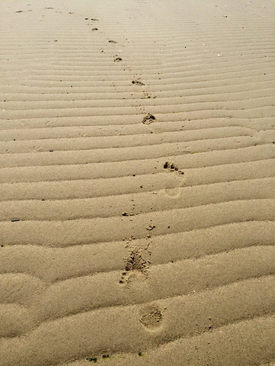
From Chuang Tzu, Taoist Philosopher 400 .C.
Much like the man in the proverb, children from addicted or dysfunctional family systems often try to outrun their grief. They are rarely satisfied with their footsteps and do not seem to feel good enough, most often trying to be better and better. Perfection never arrives.
As we attempt to run away from our grief, the past of our 'less than normal childhood', we actually intensify our pain and deaden a part of ourselves in the process, to remain emotionally safe. Delayed grief narrows our options in life, cause us to continue to survive (as in our childhoods) rather than live.
We must complete our psychological business with the past before we are ready to move on and form new and healthy attachments. There are four tasks that help us move through our old childhood grief.
- The first task of this type of grief work is naming the loss and accepting it has taken place.
- The second task is feeling the emotions associated with the loss, this includes sadness and anger.
- The third task is to adjust to an environment that the loss is missing. Owning the behaviors which were developed to compensate for the loss. The behaviors of management of the delayed grief.
- The fourth task is to withdraw emotional energy from which is lost and reinvest in other relationships.
Taken from After the Tears, Middelton-Moz & Dwinell
 RSS Feed
RSS Feed
